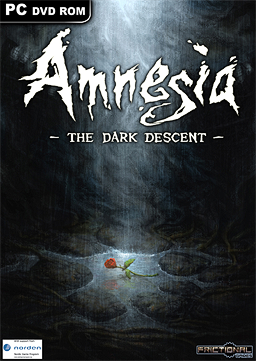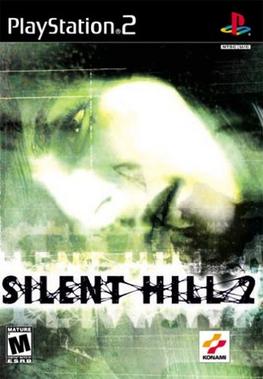Firstly, when I was writing Bro-Horror I became really interested in the nature of horror games vs movies. Video games are in a unique position to tell their stories because you interact with them, it's an active experience instead of a passive one like watching a movie. In a movie you can connect with a well written character and vicariously experience the horror they're going through, but that doesn't quite compare with the depth of connection you have to a player character in a game and the game world. People always talk about the immersiveness of video games, and how a great game can pull you into the story. I think there's also more at play here, because as SCP-087 shows: it's not just the world/story/character, you can immerse a player with nothing but an in-game avatar.
 | |
| Gordon Allport |
We tend to incorporate the car so far into our sense of self that it becomes part of "us" instead of "ours", and it seems this extends to video game characters. When we talk about video games we always refer to our characters in the 1st person instead of talking about them as characters. If you think about the sentence "So I cleared out all the Medusas." vs "Kratos cleared out all the Medusas." or "I had Kratos clear out all the Medusas.", the first seems more natural. If we're talking about God of War we talk about what we did in the game, not what Kratos did.
It's not surprising with this, that horror games have historically been really effective at creating a lasting connection with players. Some of the bigger games that came out of the PlayStation/PS2 era were survival horror games: Resident Evil, Silent Hill, Clocktower. But more recent AAA titles have failed to recapture that magic, but other people have already contributed enough to why that is. The games that have succeeded have been smaller indie titles. I'm not entirely convinced this has to do with the budgets directly, but comes about as a side effect of where a studio has to focus their energies with the small budgets.
 |
| Amnesia: The Dark Descent |
The game tells its brutal and Lovecraftian story through flash backs and diary entries that force you, as Daniel, to remember a past that you obviously didn't want to remember. Although at first glance it seems a little trite, the amnesiac protagonist trope does something very useful to the story: it equalizes your knowledge with Daniel's. Even in a game like Skyrim or Fallout where you have a huge amount of customization available, your character has had a rich life before you got ahold of them. That gap will always insulate you from the character, but because both you and Daniel know exactly as much about Daniel's life as he does that element of separation between you and the character is removed.
Amnesia's story is based on the need to know more and what happens when you learn terrible knowledge not meant for man. This theme is present in the game as the Orb, and the Shadow that kills anyone who attempts to learn its secrets. However, it's also present in what happens to you as the player when Daniel learns more about his past. His past was filled with very unsavory things, and as you continue to uncover them you can't help but feel that you didn't want to know that. What's important is that when you learn that Daniel had done these things, you actually feel a little bad about them because Daniel is a part of "you", to some degree. This makes the first play through so uncomfortable, but the affect does diminish.
 |
| Silent Hill 2 |
While it's not related to self-extension, I think the horror of discovery is worth mentioning because it does play such a huge role in making these two games psychologically disturbing, and plays to Amnesia's Lovecraftian theme. While everything in both games is pretty messed up on its own, it's passive: the monsters are just being presented to you. Discovery is active: when you think about the story while you play, and put James' or Daniel's actions into context and discover for yourself how they relate to the situation. You've been forced to participate in the disturbing realization and that really makes it internal to your thoughts...you've been incepted except instead of "break up my father's empire", the idea planted in your head is "James murdered his infirm wife and half the monsters in Silent Hill are manifestations of his own sexual guilt.".
In Dead Space, which is a technically wonderful game that I've yet to get around to finishing, the best and most skin-crawling parts are when I see logs with Dr. Kyne or encounter Mercer. It's that feeling of realizing your trapped in a tin can breached to the vacuum of space with an absolutely insane and truly zealous adherent of some Necromorph religion. Unfortunately, what should have been gut-wrenching tension spent most of the game as frustrated nervousness because everything is a jump scare and Necromorphs kept sneaking into my camera's blind spot and eviscerating me in one blow. I did the same battle probably close to 20 times before I finally got through it, that made it annoying and not scary. The game thought the monsters were creepier than their story, so I had to get through them before continuing the story and that ruined the atmosphere. Nothing takes you out of the immersion like a game-over screen every few minutes for a few hours.
Anyway, those are just some ideas I had. What do you think?

No comments:
Post a Comment